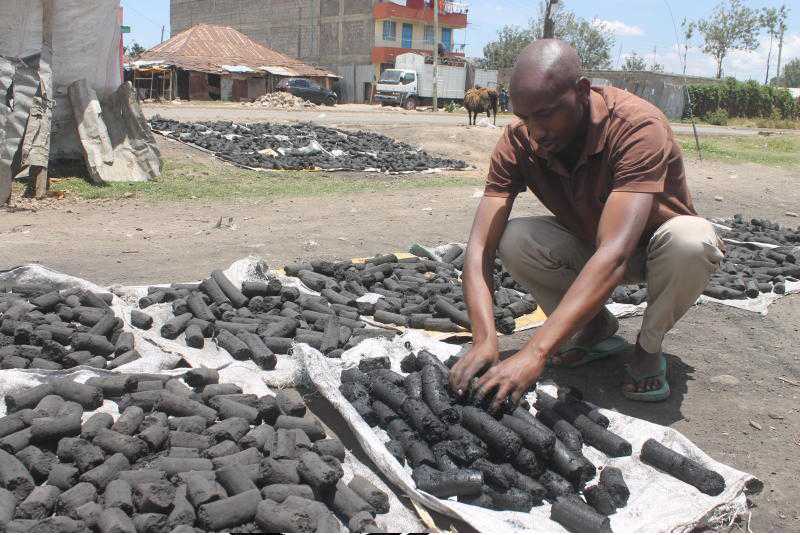×
The Standard e-Paper
Smart Minds Choose Us

Elijah Kariuki spreads briquettes outside his plant in Majengo within Nanyuki Town. [Jacinta Mutura, Standard]
It’s been eight years since Elijah Kariuki (pictured) got the idea to make briquettes. And in this time, the demand for the charcoal alternatives he produces has seen him increasingly convinced he made the right business decision.